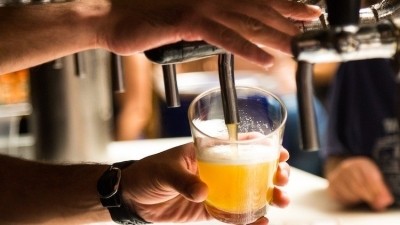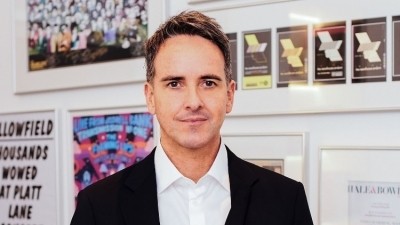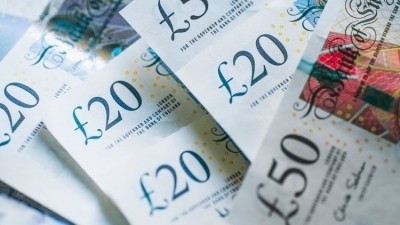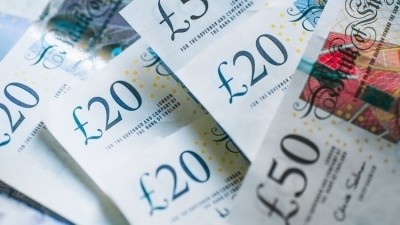Budget 'will enable hospitality to drive economic recovery', but Chancellor implored to go further
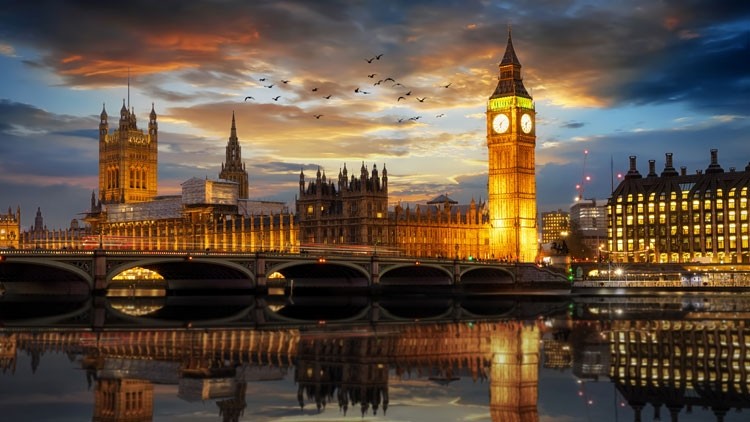
Speaking in the House of Commons this afternoon (27 October), Rishi Sunak set out his plan to 'ease the burden' of business rates in a Budget that promised more frequent revaluations and a one-year discount for hospitality businesses.
He also announced reforms to alcohol duty, and confirmed that the National Living Wage will increase by 6.6% next year to £9.50 an hour.
Regarding business rates, the Chancellor said removing the controversial levy would be 'irresponsible', citing that it raises £25bn for the Treasury. However, he did commit to reforming the system.
This will mean that from 2023 there will be revaluations every three years, rather than every five. Next year's planned in increase in the multiplier will be cancelled; and, in a targeted boost for the sector, there will be a one-year 50% cut in business rates for the hospitality and leisure sector up to a maximum of £110,000.
According to Sunak, the tax cut will be worth almost £1.7bn, and with Small Business Rates Relief more than 90% of eligible businesses will see a discount of at least 50%.
“We have been lobbying hard for significant reform of the outdated business rates system and therefore very much welcome the Chancellor’s move today to extend the 50% business rates relief for the hospitality and leisure sector for the next financial year," says Kate Nicholls, chief executive of UKHospitality.
"The devil will be in the detail, though, so we look forward to learning to what extent it will benefit businesses."
A 'good Budget' for pubs
In what the Chancellor described as the biggest changes to the way drinking is taxed in more than a century, it was announced that the main duty rates on alcohol will be cut from 15 to six, with a new system based on the principle that the higher the alcohol content, the higher the rate.
Additionally, pubs and bars will benefit from a new 'draught relief', which will apply a 5% cut to duty on draught beer and cider served from draught containers of more than 40 litres; while the planned increase in duty on spirits including Scotch whisky, wine, cider and beer will all be cancelled.
There will also be a new 'small producer relief', which will include small cider makers for the first time, in a similar way to small brewers’ relief.
“Pubs, brewers and beer drinkers will be toasting the Chancellor today for a range of business-boosting measures," says Emma McClarkin, chief executive of the British Beer & Pub Association
“The Chancellor’s decision to freeze beer duty instead of the RPI linked increase he had planned is to be warmly welcomed. It will save £177 million and secure 9,000 vital jobs across the country.
“Pub goers will also be toasting the Chancellor today for announcing a 5% lower duty rate on draught beer worth £62 million. This is great news for our local pubs and recognises the crucial role they play in our economy and society."
According to McClarkin, the 50% cut to business rates will save pubs £169m. However, she describes the £110,000 per business cap is a huge dampener that will mean 'a significant number of pubs' will not benefit from the relief at all.
The multiplier freeze, she says, will save English pubs £32m.
“Overall, this has been a good Budget for pubs as they recover from the pandemic. The measures announced today will help pubs and breweries play a leading role in levelling up the economy and building stronger, more vibrant communities throughout the country.”
VAT disappointment
One significant area of disappointment across the sector was the decision not to extend or permanently lock in the lower 12.5% rate of VAT currently being paid by the sector. It means that VAT will return to its pre-pandemic level of 20% in April 2022.
Sacha Lord, night-time economy adviser for Greater Manchester, says the decision will lead to a surge in operators closing next year under the weight of the increase.
"Despite outward appearances and busy nightlife scenes across the UK, the sector is still struggling," he says.
"Operators will take at least three years to recover from this pandemic and many remain in very precarious financial difficulties which could see them go under at any moment."
With the the Office for Budget Responsibility (OBR) forecasting inflation to reach 4% over the next year, the Chancellor noting that pressures caused by challenges to the supply chain and rising energy prices will take months to ease, and fears of fresh Coronavirus restrictions being introduced pver the winter, Lord warns that the sector is facing a perfect storm.
"Rises in inflation, supply chain issues and VAT increases are all burdens which are brutally impacting on an already beleaguered sector, and combined will result in venues closing, more staff being made redundant and tax bills left unpaid through bankruptcy.
"On top of this, reports of the impending Plan B measures are also affecting confidence. One thing we have continually asked for throughout this crisis is clarity and advanced notice. Venues are only just getting back to their feet, with the majority still in financial dire straits.
"To tease them with uncertainty over 'vaccine passports' and the threat of working from home, which will undoubtedly see an exodus of customers for operators who rely on office workers for business, is yet another disservice to the sector."
More to be done
Nicholls echoes Lord's fears.
“Positive as [the Chancellor's] announcements are, hospitality remains incredibly fragile, facing myriad critical issues," she says.
"Rising utility bills, wage bills and food and drink prices have resulted in 13% inflationary costs that businesses are having to absorb at the same time as they navigate severe supply chain issues and chronic staff shortages. Given this toxic cocktail, it is imperative the Government go further to support businesses in our sector.
“The most effective way to achieve this would be to maintain the current lower 12.5% of VAT for the sector. The Chancellor has been bold and radical with alcohol duty – we urge him to adopt the same approach when implementing root and branch reform of business rates, to ensure industries share the burden equally.
“Hospitality has shown this summer that it has the potential to kickstart the nation’s recovery and deliver jobs, growth and investment at pace across all parts of the country but that could grind to a halt next year. It can only lead recovery with the right measures of support in place.”
The Night Time Industries Association (NTIA), which represents 1,200 independent bars, clubs and live music venues across the UK, also questions the decision not to reduce VAT.
“[This] Budget had some important announcements that will enable the hospitality sector to continue to drive the economic recovery," says Michael Kill, CEO of the NTIA.
“The announcements on business rates relief for hospitality, the simplification of alcohol duties, and the cut in duty for draught beverages will be welcomed by thousands of businesses in the night-time economy.
"This sector was devastated by the pandemic, with many businesses sadly not making it through, but the resilience we have shown to this point has been incredible.
"Despite this, businesses are still suffering from increased operating costs and with the potential for interest rates to go up being very problematic, as so many having taken on debt during the pandemic. To these businesses, the announcement’s today will be important in allowing them to continue to support the wider recovery, and ensuring a limit to the extent of increased prices being felt by consumers.
“Of course the improved forecasts for growth announced by the Chancellor are good news, and the reopening of the night time economy has been a key part of this better-than-expected bounce back. We were disappointed that the Chancellor chose not to extend the 12.5% rate of VAT on hospitality – this is a missed opportunity, and it will prevent those forecasts from improving further still.”
Elsewhere, McClarkin adds that more still needs to be done with regards to beer duty.
"The overall beer duty rate in the UK remains amongst the highest in Europe," she says.
"It is vital for Britain’s brewers, a world class homegrown manufacturing success story, that the overall beer duty burden is reduced – not just duty on draught beer in pubs."
